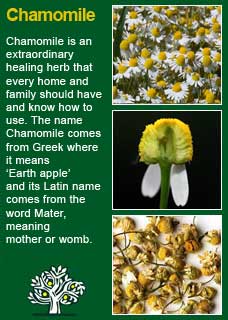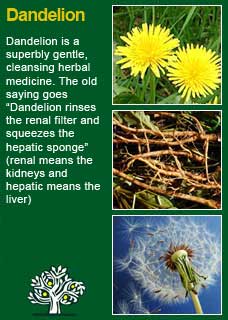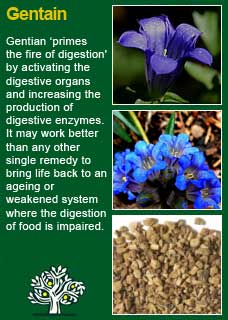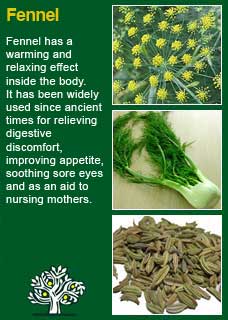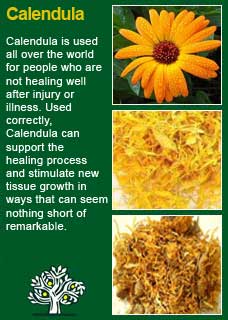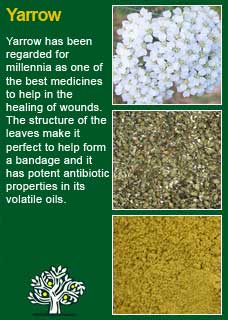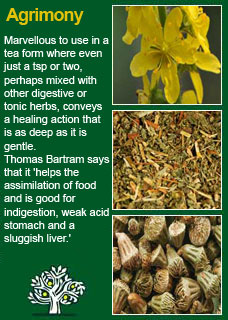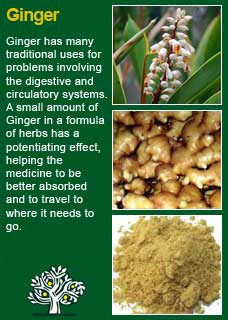
|
|
|
||
| Our Pages ABOUT CONSTITUTIONAL MEDICINE
|
The recommendations in this article are entirely suitable for a parent to use for themselves but, if there are other issues that need attention and you know that you need further help, there may be a great deal of benefit to you to go to whatever lengths necessary to find a good herbalist to support you and your family and there are some suggestions on how you might go about finding such a person here The old term 'failure to thrive' is a harsh one, but it tells it like it is and this can be a very serious matter to deal with, as any parent reading this who has experienced it themselves will know. We deeply desire for our children to be healthy and seeing them not eating and growing, despite everything we try to do to encourage them, can be a torture for a caregiver. This is a problem that has been seen and worked with successfully a number of times now, and there are some general recommendations that may potentially be of help to anyone that are discussed further below. Firstly though, from the clinic files, I am sharing two cases to illustrate some individual approaches to what can clearly be a complex problem.
I met Ruth when she was nearly 4 years old. She was the middle child of three, with an older brother and a 2-year old sister. Her mother had written me an email before the appointment to tell me the history and to express how bad things were with Ruth's eating and her general behaviour. She and her partner, and their GP, and later a child psychologist had tried everything they could to get her to start eating properly and it was clearly a source of huge angst and frustration to the family. Ruth had actually been a placid baby, she had weaned well and had a good appetite up until she was nearly 2 years old, which is when she suddenly started to refuse food and to get repeated fits of crying and outbursts of anger that could go on for hours. She presented as a very small girl for being nearly four years old, her eyes were sunken in and looked out at the world with suspicion. I normally do a fairly extensive physical examination as part of the first visit, but she had so much physical tension in her body that I kept it to a minimum, simply feeling her pulse to get a further sense of her, which was that she was like a coiled up ball of wiry tension. The mother's email had told me things about why they thought she had become so out of sorts, the various family dynamics that were happening at the time, how they had tried to deal with it, what they had been doing around rewards and punishments to try to get her eating and other behaviours sorted out. Sometimes, it is vitally important to know the causes of things if you will make a lasting difference to their treatment and, sometimes, you just need to find the right way to engage with what's wrong to start the healing process moving in the right direction. As always, the first step is to let Nature in to help. We started with the following formula of herbs.
To make 210mls, which will easily fit into a 200ml amber pharm round. Note that we make our own tinctures from organic dried herbs, so the equivalent doses from a different practitioner or company might be higher or lower. The goal was for her to take a 3ml dose, from one and up to 3 times a day, diluted in a little water. Chamomile, in the way it works on both the mind and the body; calming tension, giving comfort, is one of the most important of all herbal medicines for children. Dandelion and Gentian are herbs that have been famed throughout history for helping to restore appetite, especially in children. They are bitter, the Gentian markedly so and, of course, one would think that a bitter remedy would be the last thing a fussy child would take, but most will eventually take them willingly. Fennel and Licorice make the medicine much more palatable and have their own calming, relaxing and healing actions on the gut. Angelica is another powerful activator of the digestive system, it is pleasantly warming at a visceral level and, like Gentian, it is very stimulating to the production of digestive enzymes which improve both digestion and appetite.
I also gave a jar of GI tea, containing Chamomile, Fennel and Caraway seeds. The recipe and preparation instructions for the GI tea are written up here The first step in any healing journey, at any age, is the one in which Nature can help us back to health. We come to a point where we need to ask for help and then these ancient allies, the herbs, are there to support and help us to get well. The first step is the prescription as shown above. The next step is the 'work'. It is what the patient does to help themselves. Underlying the old ways of healing is an understanding that all living organisms have the ability to self-repair, unless something is obstructing them. The 'work' is usually doing something that helps to remove the obstacles that are getting in the way of that innate, healing intelligence From what I had heard and understood, I was sure that Ruth would reject even the first step if there was any attempt at force or coercion for her to take the herbs. The 'work' was actually primarily for the mother to take on in the first instance, and it was to trust that the force of Nature inside Ruth would want to keep her alive! Before I go on, and as the next case will show, I do not believe that this is the best or even the right approach for all children who are failing to thrive, it just needed to be the right approach for Ruth. My 'read' of her case was that, due to the various parenting and sibling dynamics, Ruth had become unhappy about her situation and had found a very effective way to protest it, i.e. by refusing to eat and by throwing a lot of temper tantrums. She was getting an enormous amount of attention from it all and that was exactly what she wanted. Yes, it was negative attention, yes it meant that she was horribly unhappy a great deal of the time, but it was still better than the alternative of feeling left out or side-lined. My advice to Ruth's mother on her taking the medicine was the same advice I gave for her food. It was to leave it to her to decide if and when she took the herbs and if and when she ate! If you who are reading this see any similarity here with your own child and think that this might be an approach that you could use, then I must warn you that it is not for the faint-hearted. There is every likelihood that there will be no quick fix here for a child that has invested themselves, in Ruth's case for nearly 2 years, i.e. half her life, in a certain pattern of behaviour. You must ask yourself if you are ready to truly trust Nature, What does that mean, to trust Nature? In this case it meant trusting that the life-force that exists inside all living things very much, deeply, truly and profoundly, wants to live. An adult who has developed and conditioned their mind to such an extent that they could go on a hunger strike to the point of death is a proof that we can override this will to live. A child has not had enough time to overthrow their innate Nature. They will get hungry and that hunger will reach a point of desperation that will overcome their mental blocks against it. The more Ruth's parents could look away from her eating, to stop talking about it, focusing on it, stressing about it, the less she would be invested in it as the lever she could use to get the attention she craved. Foods in the house were there for her to find and eat if she wanted them. Likewise, the herbs, so long as she clearly understood that they were there to help her get big and strong, then she could take them if and when she wanted. I showed her exactly how she could pour out how much she needed, how she could take from 1 to 3 mls, add as much water as she wanted and then drink it when she wanted. I asked the mother to make a cup of the GI tea at least once a day and to have one herself and to leave some there for Ruth if she wanted it (it is a very pleasant tasting tea that everyone loves, especially with some honey in it) I also told Ruth that I was happy to see her again but only if she wanted to come back, and I meant it too! Children are far more intelligent and aware than most adults think they are. They understand a great deal, even if they can't put it into words. Ruth knew what she was doing, she was the lead actor in the drama that was playing out around her. Instead of trying to disempower her from that role and make her do things she didn't want to do, I advocated for the opposite approach. Give her all the power in the world, especially over if and when she eats for a start. It's a hard thing for a parent to get their head around, especially if their own societal conditioning leads them to believing that they must win the battle with their toddler or they will be spoiled for life. Our school systems in particular teach us that if we don't follow orders that we will be shamed, an emotion that we have been programmed to avoid like the plague itself! I did see Ruth and her mother nearly two months later. It had been an extremely tough first few weeks where they were pushed to the edge of their limit of worry about whether they were on the right track and whether their daughter would be ok. Many tears, many tantrums. Things got worse before they got better, which is often the way with these old ways, which is another reason why they are not for everyone. But, to their credit, they hung in there and little by little, Ruth began to change her behaviours and to start healing what was wrong. She was a remarkably different little girl who came back into the room the second time I met her. She made eye contact, was talking a mile a minute (I barely got two words out of her the first time) and was clearly gaining strength and weight. In sharing some of the key points of this case history, I am aware that there is a lot more to be said on the subject of working with Nature for emotional healing, especially because there are really many aspects of it that are in direct contrast to a society that seeks to shame or get rid our dark moods and feelings. Anyone that needs to delve much deeper into this subject can read more here
Kevin was 6 and a half years old when I first met him. Anyone meeting him would have thought he was 4 years old at the most. He was very small and very thin. His parents had taken him to their GP as well as to a dietician. He had been tested for food allergies and nothing had come back positive and they had tried everything they could to improve his eating, use different formulas to gain weight etc. but nothing had been helping. My physical exam of Kevin showed that he had a very tense and wiry pulse and a pale and congested tongue (the subject of pulse and tongue analysis is discussed in depth here), he also had a very tense and swollen-feeling belly. These findings plus some questions about what foods he did like to eat (mostly bread) led me to believe that he may have an undiagnosed gluten sensitivity. This would not have been picked up on during his conventional blood tests and, as wheat containing pasta, biscuits, noodles, bread etc, were the foods that were being pushed to help him gain weight, it was a large part of what he was eating. The question about what did he like to eat was because, paradoxically, the food a person is most intolerant to is often the one they crave the most...
To make 210mls, dosage of 4 mls, three times a day, which is about a three-week course and when we scheduled a follow up visit. Calendula, Yarrow, Agrimony are some of the best herbs in Nature to help heal a wounded gut lining. Dandelion simply helps children to grow and the Licorice is to help blend and soften the taste of the other herbs. The small dose of Ginger would help it to get deep into his system without being too spicy. Kevin needed to follow a strictly Gluten-free diet until we met again. If he was not clearly making progress before the 2nd appointment, I asked his mother to give him some bread to see how he reacted to it but, if he was very obviously doing much better, I suggested she just keep going with staying off it. The subject of eliminating and challenging with Gluten, as well as more details about what completely avoiding it means, is written up in more detail here Given how tight and tense Kevin's pulse and belly felt, I believed that, even if there was a gluten intolerance underlying his poor growth, that there was also a significant component of physical tension in his system that would be holding him back. Consequently, an important part of the 'work' was for his mother to do a nightly massage over his belly with a formula of herbs called 'trauma salve' the recipe for which is written up here, however really any kind of cream or oil would have sufficed. I showed the mother a very easy technique, basically working around the belly in a clockwise circle and gradually getting deeper as he relaxed into it. Kevin was squirmy and resistant at first but after a short while he began to relax and you could literally see his tension start to un-knot. I saw Kevin and his mother 3 weeks later when things had already been improving in leaps and bounds. She had not reintroduced Gluten and was determined to stay off it for a full three months, after which she was to carefully try the '3 strikes and you're in' approach as detailed in the article on allergy and intolerance here Kevin got 2 further repeats of his GI healing formula but I did not need to see him in the clinic again. I ended up treating his mother for a different issue some time later and she told me that he was literally thriving, eating like a horse and making up for lost time. The poor kid's guts had been aching all the time and, whenever he ate, it was making him worse, so of course he had gone off his food. This plus the fact that he was getting no real benefit from the wheat he was eating was having catastrophic consequences on his health. Did he get better because of the diet, the herbs or the massage? It doesn't matter. Even if he might have eventually improved with just one approach, he was certainly able to get better much faster with all three.
I trust that the above examples have illustrated that the holistic treatment of a failure to thrive requires an individualised approach that seeks to treat the underlying imbalances and, as mentioned at the beginning, if your condition is very bad or you know you need some guidance in person then I hope you will be able to find a good herbalist who will get involved and guide you to doing or getting whatever your child needs to get well. However, it also may be that you just don't have the option of working with a holistic practitioner. In these instances, I want to share some general suggestions, starting with some reliably effective medicines from Nature that are safe and likely to help. If there was just one herb that I could use for a child that was not thriving, it would be Dandelion. There are many ways to use it as a tea or a tincture. Yes, it is a strong taste and it may take some patient conversations with the child for them to understand why they should help themselves to it but don't underestimate their desire to be strong and healthy either, they will come to it in time. More details on this humble but great herb here Gentian is known as the 'King of Bitters'. As I talked about in the case of Ruth, no-one in their right mind would imagine that a child who is refusing to eat would easily take to a bitter tasting herb. Again, it is a matter of letting them come to it. Only a few drops are needed to activate a domino-like process of stimulating digestive secretions in the mouth and digestive juices in the stomach, liver and pancreas. Chamomile is the universal children's herb. We use it for everything including; sore stomachs, colds and flu, headaches, fevers, earaches, rashes and upset nervous systems. There is always going to be some component of stress to a situation where a child is not thriving. Whether it is a cause or an effect, Chamomile will help to at least some degree. The tea is probably the best way to use it overall but it is also very effective in a tincture if combined with other herbs. More about it here
I am aware that there are a great many thoughts and theories about what it means to 'eat well' but a diet based on whole foods (as opposed to processed foods made in factories) is surely something we can all agree on. I also trust that you will be aware of the possibility of gluten, dairy or some other food intolerance being at the root of the problem. Again, if you need to explore this area further (and any history of asthma or eczema would suggest you must explore if further) then read here In working extensively with a great many people who have chronic troubles with their health, many of them having tried a variety of different diets to get better, one approach that I find works consistently well is to ask a person to tune into their innate instincts to ask a question 'what do I really want to eat?' I think that we are afraid to do this with children because we think that they will only opt for ice-cream, or chips, or chocolate, or sweets etc. but what if we take it a step further and say 'yes, ok, you can have that, and what else would you like as well?' As much as the makers of junk foods are most adept at hitting the chemical receptors in the brain that create craving and addictions, we still have all of our powerful underlying instincts and when a child (or an adult) tunes into their body and their deeper desires, we consistently observe that there are foods that they want to eat that are truly nourishing and what they actually most need. I understand that this might read as wishful thinking when a fussy child is in the picture, but I encourage you not to underestimate the power of Nature to find the way to health, and to be certain that all that Nature is woven into the being of your child as much as it is in any living thing. If a child knows that they can and should look into their heart, their belly and their instincts to answer the question of 'what do they really want to eat?' I think you will start to get some surprisingly positive answers coming back. There is always going to be some component of stress in a situation where a child is not thriving. This can be a most complex area and each case is different but there is much common ground too. For example, there are herbs that reliably help to reduce stress and tension and there are some effective breathing and other techniques that have been seen to help time and time again. For a detailed discussion on this important area, the article on anxiety contains the best of what I know to consistently work, much of it being just as applicable to children as to adults - it's here
Please understand that I cannot personally advise you without seeing you in my clinic. |
|
|
© 2011 R.J.Whelan Ltd

